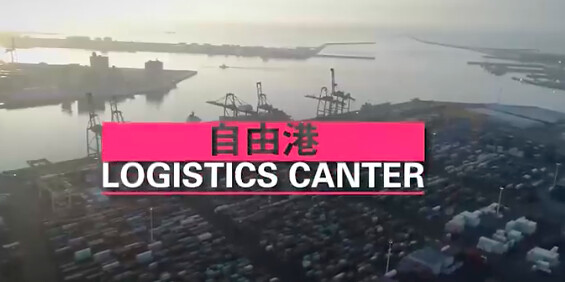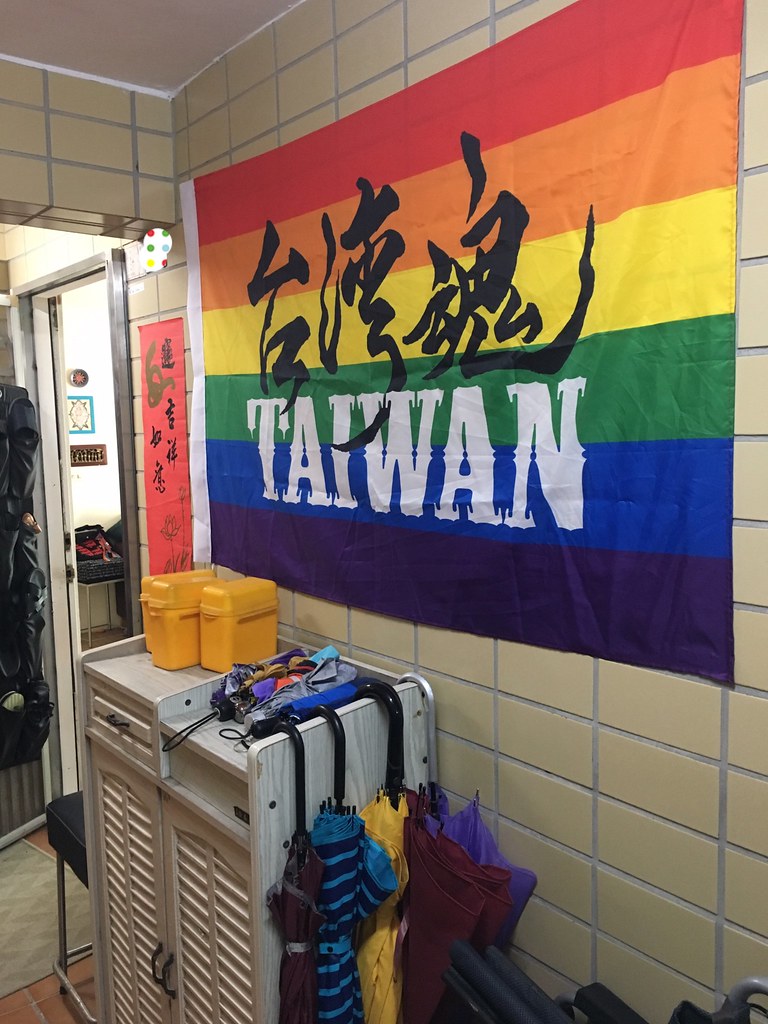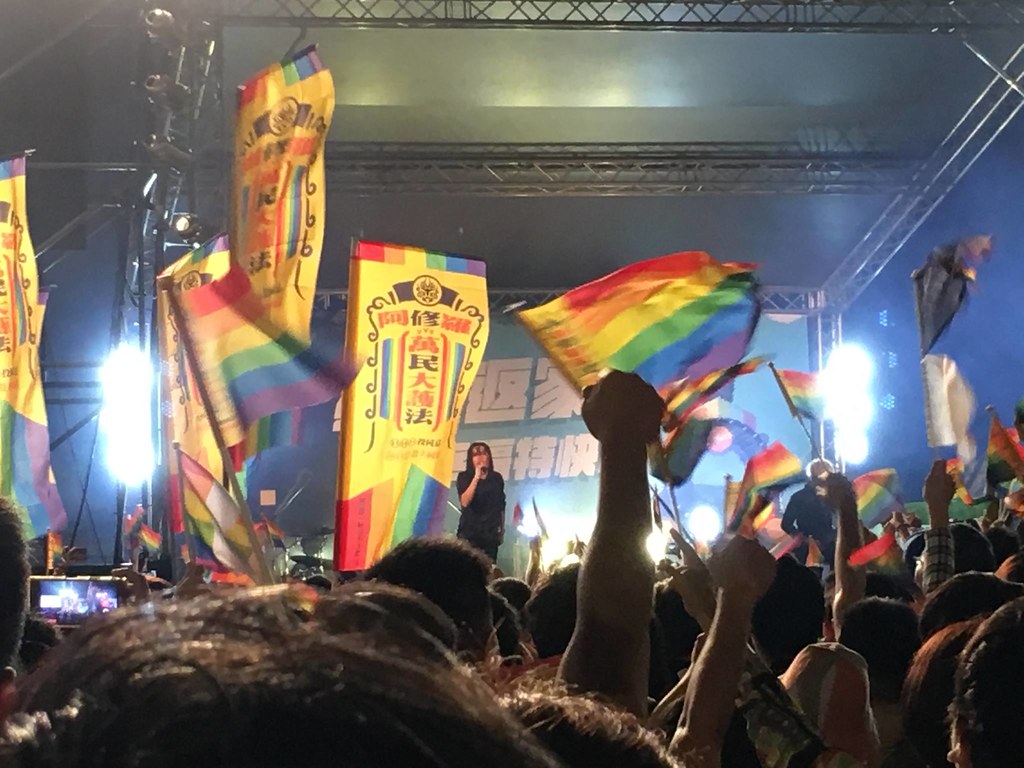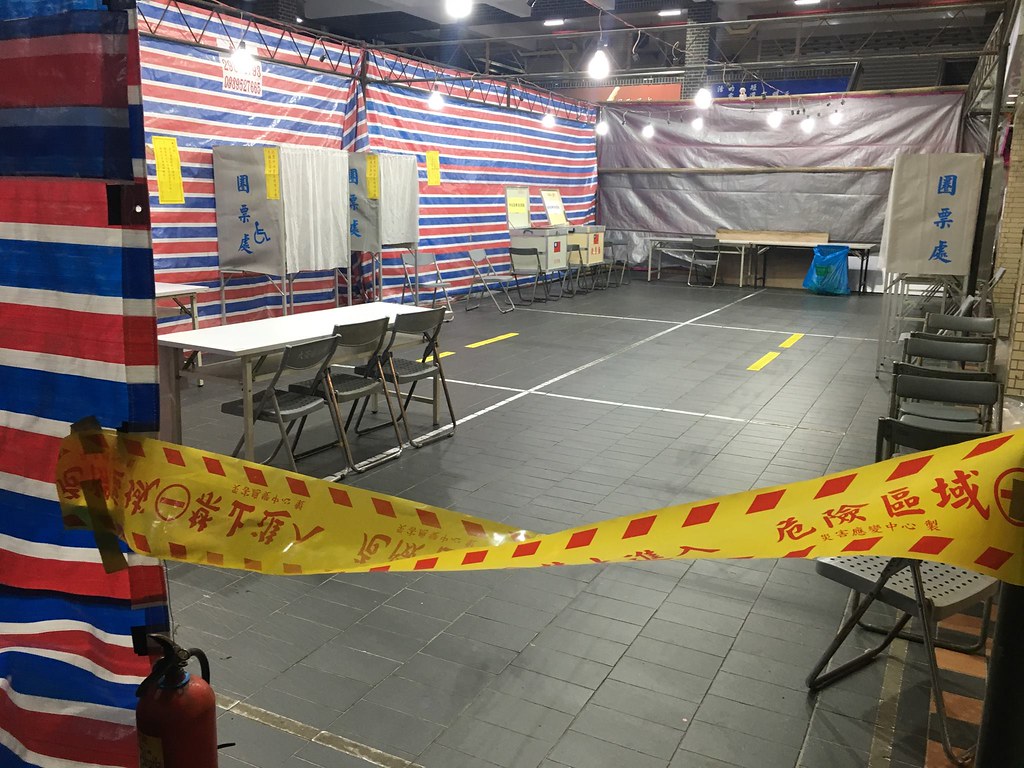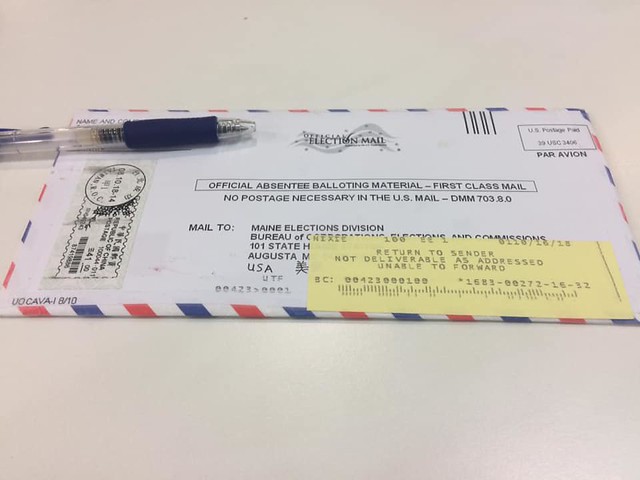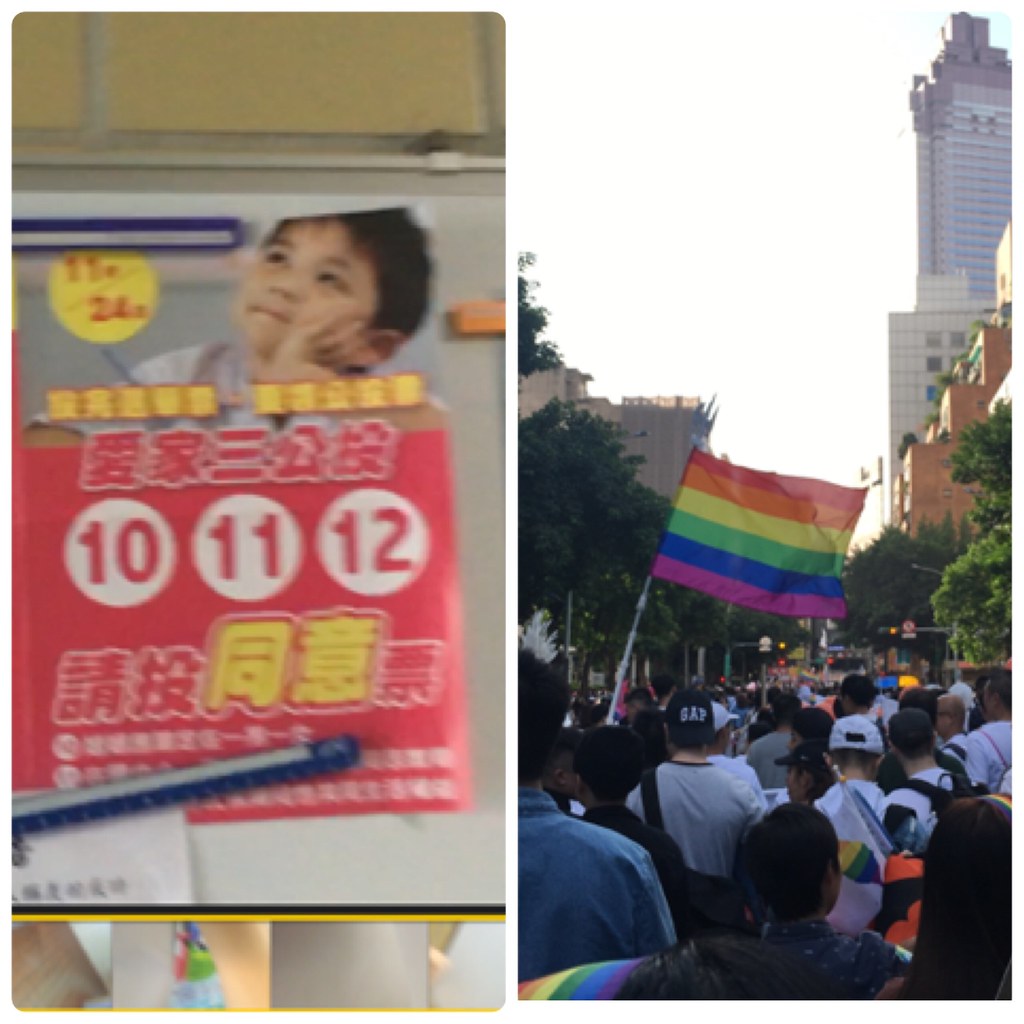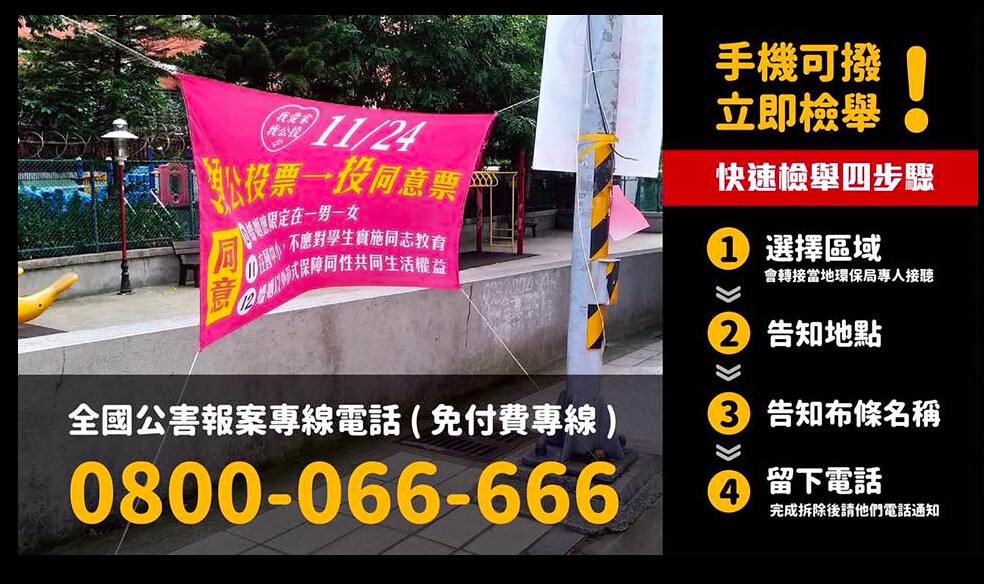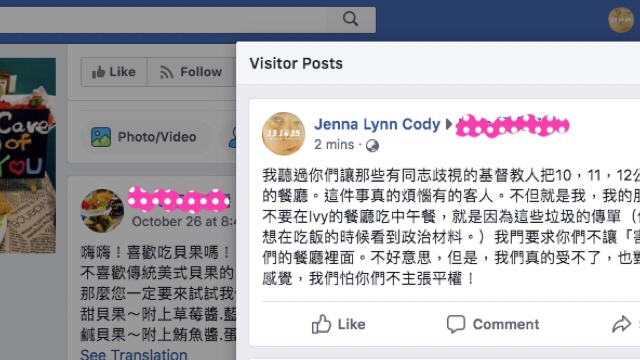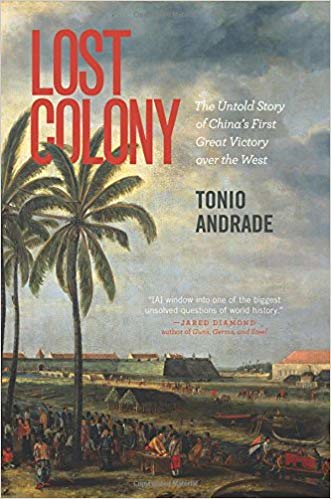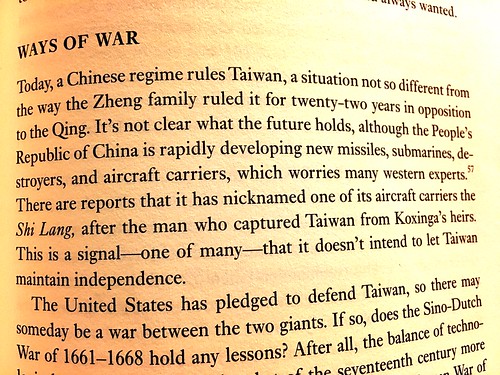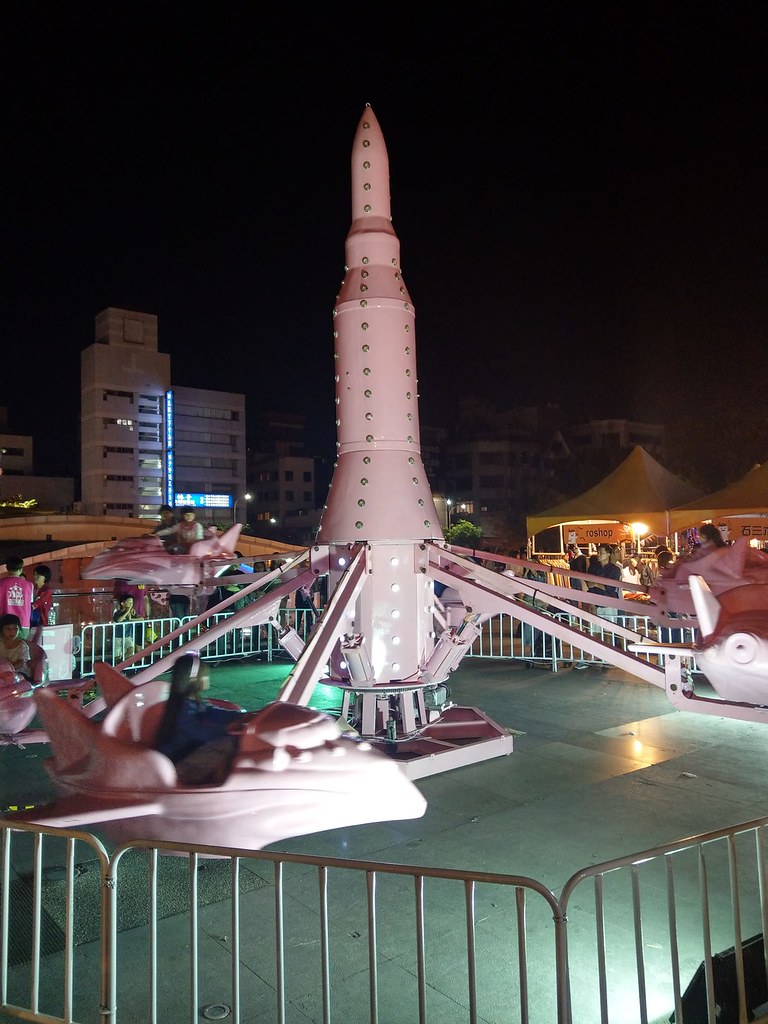 |
| You all are getting taken for a ride. You've taken this ride before, and you don't even remember that it made you puke. |
So everyone's going on about why the DPP lost so badly. It's a "rebuke" to the Tsai administration. Some are saying they weren't listening to their base (many of whom are center-right social conservative small-business owners and working-class people, generally Taiwan independence supporters). Others are saying they didn't deliver on progressive promises, so their other column of support - young Taiwanese liberals - abandoned them. Someone I know is saying that Taiwanese want a center-right society and will accept it being pro-China or pro-Taiwan. Another is saying Taiwanese vote with their wallets, and the KMT could offer more economic perks.
All of these things are true at once (though I'm not quite so sure about progressive deserters - some of them went for the NPP, true, but who else would they have voted for? The KMT? They know the KMT is even less progressive than the DPP, and voter turnout wasn't too low so they didn't stay home.)
But there's another issue which bothers the hell out of me. It's been said before, just not about this election, and yet it holds now too.
How is it that the KMT can screw up so spectacularly every time - like, every single time - and still get "a second chance" or "time for their ideas to show results", but if the DPP isn't immediately Jesus Who Descendeth From Heaven To Save Us All, they're angrily voted out before we can even see what the effects of their policies are?
Let's start with China.
ECFA was a joke - it didn't really do much for the economy except hollow out the job market as everything was moved to China (which was exactly China's intent). Exports grew more under Chen - whom China hated - than they did under Ma. Chinese tourism was a joke - it had little-to-no effect on the Taiwanese economy. It was one massive scam that made the country a noticeably worse place to live while offering no real benefit (unless cheap, tacky hotels spurting up like whiteheads across scenic areas or caravans of tour buses and the low-wage jobs they bring - but not more than that as most of the companies that own those hotels and tour/bus companies are based in China - can be called a "benefit". Which they can not.) Although it was great if you enjoyed getting locked out of purchasing train tickets.
And yet Ma got "four more years" to "give him a chance", the KMT remained strong, and didn't suffer any real wipeouts until halfway through Ma's second term when his "chance" came to fruition and it was shown to be a stinking heap of garbage, because a bunch of plucky activists drew back the curtain.
For a short while, it was clear to everyone that China's strategy was to parlay increased economic dependence into increased political integration. China didn't even try to hide this. For the briefest glimmer of a moment, people realized that the 1992 Consensus was a massive made-up turd bomb and they didn't have to agree that there was "one China" or that they were a part of it. They voted in a government to try something new.
So the DPP goes ahead and does exactly what we elected them to do, which was decrease Taiwan's economic dependence on China and pursue other strategies, while refusing to acknowledge a fabricated "consensus".
The effects were not immediate, and we always knew there would be drawbacks (Chinese money sure does look nice and smell like profit, but underneath that there's a whiff of political oppression that cannot be Febreezed away.)
And yet, because the exact drawbacks we knew would manifest did, Taiwan got mad and voted a bunch of DPPers out. We don't even know yet what the long term effect of the DPP's policies will be, because it's only been two years, and yet they didn't completely transform Taiwan into a perfect wonderland where everyone is rich. No matter that the KMT couldn't do in eight years what the DPP could not possibly have done in two. Let's have those guys back!
Now, newly-elected KMT mayors are talking about recognizing the 1992 Consensus. They will get an influx of Chinese capital for their obedience, and it will certainly smell like profit. These cities will become increasingly economically dependent on China, but will seem as though they are doing better than municipalities not governed by the KMT.
Never mind that this sets up a perfect system of economic blackmail. Do what we say, or we turn off the spigot. This isn't hyperbole or speculation. They did this with Chinese tourists to Taiwan and then spread fake news about what an economic disaster it was (it wasn't). They are doing it to Palau. They are likely to try it with Chinese students in Taiwan. They'll do it with everything from the Olympics (fuck those guys, by the way) to the Golden Horse awards.
Nevermind that we figured this out in 2014 - it's like nobody remembered the lesson. Yeah, let's vote exactly those dudes we occupied a legislature to stop back in power to do the exact thing we all went downtown to make them stop doing again, because after giving them eight years to sell out Taiwan, we couldn't completely fix it in two years.
And we won't even know how well we might have fixed it, because for all this "we gave the DPP a chance in 2016", no my dudes, you did not. Not the way you keep handing Taiwan to the KMT like they're holding the magic key when really they're holding something far more flaccid.
And there's the air pollution and the nuclear issue.
The KMT completely screwed us on air pollution, not giving a damn about it until they could hand the problem over to the DPP. Yes, we should have known under Chen Shui-bian that we needed to start investing in renewable energy technology, but it was still early then: most other nations hadn't fully begun to realize that yet, either. But it was glaringly clear that this was the direction we needed to take under Ma Ying-jeou, who promptly stuck his thumb up his ass and did jack-all about it for 8 years as the situation grew worse.
And yet the DPP gets voted out because they didn't fix air pollution in 2 years.
Everyone was willing to go ahead with the anti-nuclear activists (whom I still sort of blame for not concurrently pushing for a serious green energy policy, and who seemed happy to return to coal as long as Taiwan denuclearized) until they realized that would make air pollution worse, because again the KMT spent eight years doing jack-all about it so we had no better alternatives, and voted nuclear back in. Not that it matters: whether we denuclearize or not, air pollution here won't get better until the government takes it seriously, and neither party has taken it seriously. The only difference is the KMT gets eight years to not take it seriously, but the DPP is expected to make it all better in two.
 |
| This sucks, and not all of it is from China (some of it is). But to blame the DPP for this after two years when it got this way under the KMT to begin with? |
Even so, the DPP has both screwed up and shown glimmers of awareness. On one hand, pollution has gotten worse. In places like Taichung where it is especially noticeable, the government preferred to massage the air quality numbers rather than do anything, and they have been quietly reopening coal-fired plants.
On the other, I recall that until fairly recently, power generated from green energy companies could not be sold directly to consumers. So, of course, nobody was producing it because there was no money to be made (if I remember correctly, the power generated had to be first sold to Taipower). That changed not long ago under Tsai, not the KMT.
Then there's wages. Sure. Wages have been stagnating and Taiwan's minimum wage is "unjustifiable" (to quote the News Lens above).
But again, the KMT let the minimum wage stagnate for four years, then got re-elected so it could stagnate for another four. Give them a chance! We don't know how well their ideas are working! people said. Nevermind that it was blatantly obvious that they didn't give a damn, because big bosses were doing alright and if they weren't they could just go to China.
The DPP raises the minimum wage more than it has risen in decades, and yet Tsai gets a "rebuke" for low wages. Do they really think wages will rise more under the KMT, when they didn't for eight goddamn years?
And I could say something similar about labor laws. I'm not a fan of the 2nd round of labor law amendments, and the first round weren't great either. But, they were a substantial improvement over KMT policy, and yet workers immediately cried out that it wasn't enough, while bosses immediately cried out that they'd no longer be able to treat workers like slaves, and that will make us less competitive! WE NEED SLAVES!
The KMT knew this issue was a hornet's nest, so they basically threw workers under the bus for eight years because the Boss Class was enough to get them elected. The DPP made a mediocre attempt at addressing the problem, and suddenly they're the devil fucking incarnate.
And finally there's marriage equality.
Yes, the DPP wimped out on this one. Yes, they failed to grow a spine, and they lacked moral courage. They backed away from campaign rhetoric and disillusioned their progressive voters, thinking that their bigot voters could carry them through.
And yet, among them there are supporters of equality. Some DPP legislators have been trying to get it on the docket for quite a long time, before it was a mainstream topic. At least they were willing to try out the rhetoric, and I do believe their goal was to wait out the clock so the civil code would automatically be re-interpreted, knowing full well that a.) if this ever came to a vote, conservative Taiwanese would be mobilized by well-organized hatemongers and vote against it (and lo, that is exactly what happened), and b.) passing a 'separate law' would not satisfy progressive voters.
What did the KMT do? Eight years of not giving a shit about marriage equality, that's what (to be fair, twelve ago the mainstream wasn't about marriage equality, so this isn't just an issue of an uncaring KMT. Society at large didn't care, either). Sure, since then, a few pro-equality KMT legislators have made themselves known (though offhand I can only recall the name of one), but all-in-all it was clear in this election cycle that anti-equality campaigners and the KMT are hand-in-hand (and, again, I suspect this might be the result of a quiet alliance, not a coincidental convergence of interests).
So progressives, fine, you're mad at the DPP for being such cop-outs. I get it. But you know the KMT is going to be worse, and yet you let the DPP get slammed because they couldn't convince the more conservative elements of society to go along. Yes, they could have tried harder, but the KMT was and is never even going to try.
You blame the DPP for every single thing - even things that weren't their fault, from the nuclear/coal conundrum to the Taipei Dome. You voted Hau out because of the Taipei Dome, after giving him eight years to sit there jacking it in his office. Ko (not DPP but the point is, he's not KMT) just barely gets re-elected because he couldn't fix Hau's corrupt mess in four years, despite marked improvements in the city, from real bike lanes to an improved North Gate (though to be clear, I'm not a fan of Ko and absolutely do not want him to be president.) Yet you give credit to the KMT for things they didn't even do (the KMT routinely takes credit for improving MRT access in New Taipei, but as a friend pointed out, those plans were laid in the Chen administration) and keep re-electing them.
This has a basis in history too. The KMT stole from Taiwan for two generations, and then got a second chance in 2008 because they've "changed" (HOW DID THEY CHANGE EXACTLY?) Chen Shui-bian - admittedly not the greatest guy - steals a fraction of that and suddenly the DPP is evil and untouchable for more than half a decade.
I get that expectations are higher - I keep hearing "well we expect that from the KMT but we wanted better from the DPP", but then give them a chance to do better just like you do with the KMT!
Mark my words. The KMT is going to do a terrible job, because they always do. And yet they will get "a second chance", because they always do. They won't be able to fix pollution or wages - they won't even try to fix wages - they'll just tell you all to go to China for work. Same country anyway, har har har. Even if they could fix pollution, they won't try to do that either, because the only punishment for being lazy moneygrubbing China-fluffing wankstains the first time around was two years in the wilderness.
Oh but they will make Taiwan economically dependent on China, bring back attempts to force Taiwanese to say publicly that they are Chinese (that is what the 1992 Consensus is, after all), and work with Christian hate groups to ensure that the constitution can never be interpreted to allow marriage equality.
There will be a big battle for the presidency, and a peace agreement with China because we never learn our lesson, and we will become Hong Kong with no freedom or autonomy. People will start to believe - because the KMT will tell them to - that Chinese money is helping Taiwan, even if it isn't. They'll start to believe peace can be negotiated with the power that seeks to annex them. They'll give them "another chance".
And unless some new Sunflowers come 'round to teach us all a lesson again, we'll become Hong Kong. And then, when we don't comply, Xinjiang. The world will do nothing, because that's what it always does. Some people will even believe this is better for you or that it's a step in the right direction toward "peaceful reunification". The KMT won't even try to stop this disinformation leaking into international political discourse, because it serves their purposes for the rest of the world to be misinformed about Taiwan.
After a brief, imperfect but also glorious window when the world seemed to be finally waking up to the reality of democratic Taiwan, they will be yet again hypnotized into believing that the Taiwanese want the 1992 Consensus or "Chinese Taipei". Doesn't matter that that's not true, and it's a hack interpretation to believe that it is (voting out of fear of IOC retribution is not the same as embracing "Chinese Taipei".)
And then we'll be dead and Taiwan will be gone.

